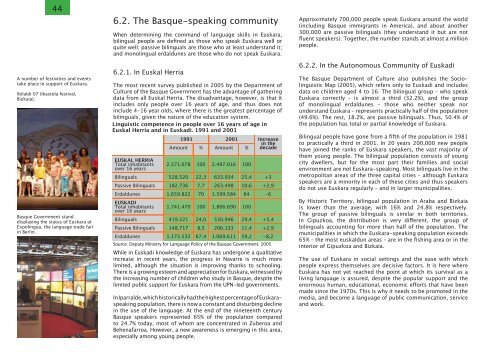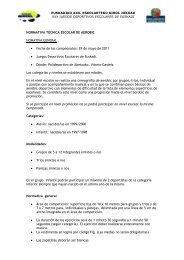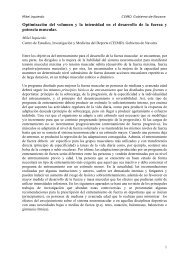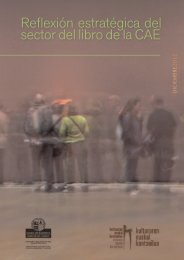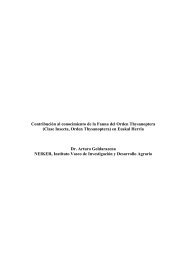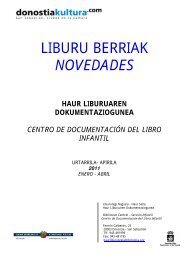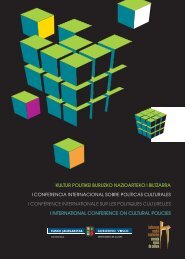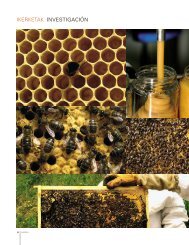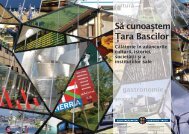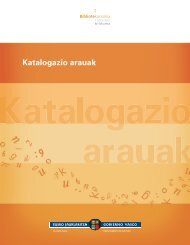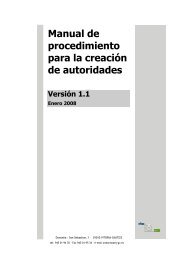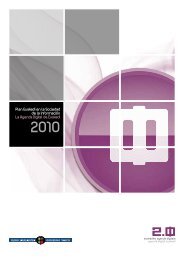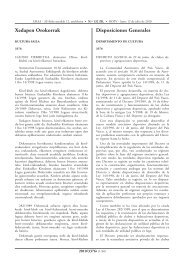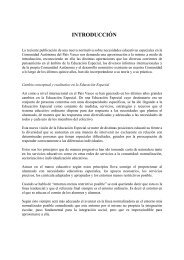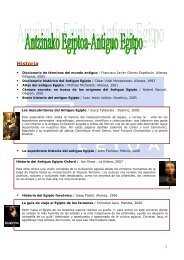The Basque Country (pdf, 4,3Mb) - Kultura Saila - Euskadi.net
The Basque Country (pdf, 4,3Mb) - Kultura Saila - Euskadi.net
The Basque Country (pdf, 4,3Mb) - Kultura Saila - Euskadi.net
Create successful ePaper yourself
Turn your PDF publications into a flip-book with our unique Google optimized e-Paper software.
44<br />
A number of festivities and events<br />
take place in support of Euskara.<br />
Ibilaldi 07 (Ikastola festival,<br />
Bizkaia).<br />
<strong>Basque</strong> Government stand<br />
displaying the status of Euskara at<br />
Expolingua, the language trade fair<br />
in Berlin.<br />
6.2. <strong>The</strong> <strong>Basque</strong>-speaking community<br />
When determining the command of language skills in Euskara,<br />
bilingual people are defined as those who speak Euskara well or<br />
quite well; passive bilinguals are those who at least understand it;<br />
and monolingual erdaldunes are those who do not speak Euskara.<br />
6.2.1. In Euskal Herria<br />
<strong>The</strong> most recent survey published in 2005 by the Department of<br />
Culture of the <strong>Basque</strong> Government has the advantage of gathering<br />
data from all Euskal Herria. <strong>The</strong> disadvantage, however, is that it<br />
includes only people over 16 years of age, and thus does not<br />
include 4-16 year olds, where there is the greatest percentage of<br />
bilinguals, given the nature of the education system.<br />
Linguistic competence in people over 16 years of age in<br />
Euskal Herria and in <strong>Euskadi</strong>. 1991 and 2001<br />
1991 2001 Increase<br />
in the<br />
Amount % Amount % decade<br />
EUSKAL HERRIA<br />
Total inhabitants<br />
over 16 years<br />
2.371.078 100 2.497.016 100<br />
Bilinguals 528.520 22,3 633.934 25,4 +3<br />
Passive Bilinguals 182.736 7,7 263.498 10,6 +2,9<br />
Erdaldunes 1.659.822 70 1.599.584 64 -6<br />
EUSKADI<br />
Total inhabitants<br />
over 16 years<br />
1.741.470 100 1.806.690 100<br />
Bilinguals 419.221 24,0 530.946 29,4 +5,4<br />
Passive Bilinguals 148.717 8,5 206.133 11,4 +2,9<br />
Erdaldunes 1.173.532 67,4 1.069.611 59,2 -8,2<br />
Source: Deputy Ministry for Language Policy of the <strong>Basque</strong> Government. 2005<br />
While in <strong>Euskadi</strong> knowledge of Euskara has undergone a qualitative<br />
increase in recent years, the progress in Navarre is much more<br />
limited, although the situation is improving thanks to schooling.<br />
<strong>The</strong>re is a growing esteem and appreciation for Euskara, witnessed by<br />
the increasing number of children who study in <strong>Basque</strong>, despite the<br />
limited public support for Euskara from the UPN-led governments.<br />
In Iparralde, which historically had the highest percentage of Euskaraspeaking<br />
population, there is now a constant and disturbing decline<br />
in the use of the language. At the end of the ni<strong>net</strong>eenth century<br />
<strong>Basque</strong> speakers represented 65% of the population compared<br />
to 24.7% today, most of whom are concentrated in Zuberoa and<br />
Behenafarroa. However, a new awareness is emerging in this area,<br />
especially among young people.<br />
Approximately 700,000 people speak Euskara around the world<br />
(including <strong>Basque</strong> immigrants in America), and about another<br />
300,000 are passive bilinguals (they understand it but are not<br />
fluent speakers). Together, the number stands at almost a million<br />
people.<br />
6.2.2. In the Autonomous Community of <strong>Euskadi</strong><br />
<strong>The</strong> <strong>Basque</strong> Department of Culture also publishes the Sociolinguistic<br />
Map (2005), which refers only to <strong>Euskadi</strong> and includes<br />
data on children aged 4 to 16. <strong>The</strong> bilingual group – who speak<br />
Euskara correctly – is almost a third (32.2%), and the group<br />
of monolingual erdaldunes – those who neither speak nor<br />
understand Euskara – represents practically half of the population<br />
(49.6%). <strong>The</strong> rest, 18.2%, are passive bilinguals. Thus, 50.4% of<br />
the population has total or partial knowledge of Euskara.<br />
Bilingual people have gone from a fifth of the population in 1981<br />
to practically a third in 2001. In 20 years 200,000 new people<br />
have joined the ranks of Euskara speakers, the vast majority of<br />
them young people. <strong>The</strong> bilingual population consists of young<br />
city dwellers, but for the most part their families and social<br />
environment are not Euskara-speaking. Most bilinguals live in the<br />
metropolitan areas of the three capital cities – although Euskara<br />
speakers are a minority in each of these cities and thus speakers<br />
do not use Euskara regularly – and in larger municipalities.<br />
By Historic Territory, bilingual population in Araba and Bizkaia<br />
is lower than the average, with 16% and 24.8% respectively.<br />
<strong>The</strong> group of passive bilinguals is similar in both territories.<br />
In Gipuzkoa, the distribution is very different, the group of<br />
bilinguals accounting for more than half of the population. <strong>The</strong><br />
municipalities in which the Euskara-speaking population exceeds<br />
65% – the most euskaldun areas – are in the fishing area or in the<br />
interior of Gipuzkoa and Bizkaia.<br />
<strong>The</strong> use of Euskara in social settings and the ease with which<br />
people express themselves are decisive factors. It is here where<br />
Euskara has not yet reached the point at which its survival as a<br />
living language is assured, despite the popular support and the<br />
enormous human, educational, economic efforts that have been<br />
made since the 1970s. This is why it needs to be promoted in the<br />
media, and become a language of public communication, service<br />
and work.


